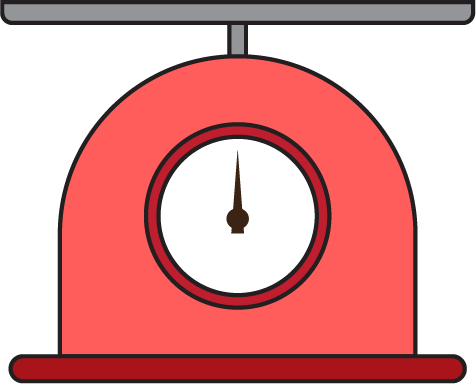Menu
In the sixth week of pregnancy, you are still in the second month of your pregnancy Journey. To be precise, you are now one month and two weeks pregnant. This signifies that you now have one month and two weeks to complete your first trimester. You will have seven more months to complete your pregnancy journey. Most women would have found out that they’re pregnant at this stage. Now that you are fully aware, you may be dealing with a lot of emotions. Your emotions may range from excitement to nervousness.
Your baby’s face has started forming. It will get its structure by this week.
Through an early ultrasound, you may be able to hear your little one’s heartbeat at week 6.
Your baby, who looks like a tadpole, is curled up with its leg tucked in, and drawn up to the torso.
Your baby’s face has started forming. It will get its structure by this week.
Through an early ultrasound, you may be able to hear your little one’s heartbeat at week 6.
Your baby, looking like a tadpole, is curled up with its leg tucked in and drawn up to the torso.
At week six, your baby’s face outline will begin to take a more definitive shape and appear more like a human face.
At four weeks, the development of the limbs starts. Then by week six, the upper buds will continue to grow and look more like normal human hands. During this week, the hand plates would go on to form the palms and the fingers.
This week your baby begins to make tiny little movements. This signifies that the nervous system is starting to function. Your baby will make spontaneous movements such as twitching of the body and limbs.
The ears also develop at the sixth week of pregnancy. The position of the eyes is now very obvious because of the formation of a dark coloring called the “retinal pigments”.
At this stage the intestine also begins to develop and it grows very quickly. The rapid development of the intestine leads to the growth of the umbilical cord. But don’t worry, this will go back with time. This happens because the abdominal cavity is still too small to contain the rapidly growing intestine.
At week six, your baby is approximately 0.26 nches. This roughly equals the size of a shirt button and weighs 1.12grams.






At 6 weeks pregnant, you have about 34 more weeks to complete your pregnancy journey.
During the 6th week of pregnancy, there’s increased fluid and blood flow in your body, which causes the kidney to be more efficient, leading to frequent urination. Try to lean forward while peeing to empty your bladder fully.
You might also feel nauseous and sick to your stomach at any time of the day. This is due to the rise in Human Chorionic Gonadotropin (HCG) in the body. Drinking plenty of fluid can help to keep it at bay.
At this week of pregnancy, there will still be no baby bump. The pregnant uterus is still in the pelvis. There are no obvious physical changes yet. Most of the changes you would observe are noticed by you alone. You would not look pregnant to people just yet.
Most women will begin to have morning sickness from the sixth week of pregnancy. All pregnant women won’t experience this; a majority would. Although its called morning sickness but the feeling of nausea can present at any time of the day.
Because your baby is rapidly growing, the uterus is also expanding. Since the uterus is still in the pelvis at this stage, it usually presses against the bladder and causes you to urinate more than usual.
This is also caused by the proximity of the uterus to the rectum. Since the now enlarged uterus presses against the rectum, you will get constipated often.
Food cravings and food aversion
You may start being more selective about what you eat. The food that you previously found appealing might irritate you. And you may also begin to have the appetite for new and sometimes strange food combinations.
This is also caused by the pregnancy hormone called progesterone. Drinking a lot of water can help reduce this symptom.
Most women will begin to have morning sickness from the sixth week of pregnancy. All pregnant women won’t experience this; a majority would. Although its called morning sickness but the feeling of nausea can present at any time of the day.
Because your baby is rapidly growing, the uterus is also expanding. Since the uterus is still in the pelvis at this stage, it usually presses against the bladder and causes you to urinate more than usual.
This is also caused by the proximity of the uterus to the rectum. Since the now enlarged uterus presses against the rectum, you will get constipated often.
Food cravings and food aversion
You may start being more selective about what you eat. The food that you previously found appealing might irritate you. And you may also begin to have the appetite for new and sometimes strange food combinations.
This is also caused by the pregnancy hormone called progesterone. Drinking a lot of water can help reduce this symptom.
If at this stage, you haven’t booked your first appointment with your doctor or midwife, then you are wrong. An obstetrician or midwife will provide you with medical advice. They give advice such as the drugs to take or drugs to avoid. You may also receive special care. This is important if you have a chronic medical condition. A woman with diabetes, hypertension, sickle cell disease, etc., would require close monitoring during pregnancy.
Supplements and vitamins are relevant during pregnancy. Supplements such as folic acid, vitamin D, vitamin C, etc., are important for a pregnancy to progress smoothly. You may receive other special supplements if the need arises. For example, women with progesterone deficiency may receive progesterone supplements to avoid miscarriage.
Being overweight or underweight while pregnant can lead to a lot of pregnancy complications. You may sometimes have the desire to eat unhealthy meals. Other times, certain foods may irritate you and cause you to eat less. You should learn to fight those urges. Eating a healthy and balanced meal will ensure that you are well-nourished during your pregnancy.
Drinking a lot of water helps keep you hydrated. Although this would worsen your issues of urinating frequently, you should still drink water.
Urinary tract infection: From the sixth week, the risk of coming down with a UTI increases. There is an increased probability of getting a urinary tract infection if you hold in your urine for too long. So to avoid this, you should always urinate whenever you feel the urge to. You should also watch out for a burning sensation during urination or an abnormal vaginal discharge. These symptoms might be indicative of a UTI.
Ectopic pregnancy: An early ultrasound scan will help prevent the disaster that may arise from a ruptured ectopic pregnancy. So If you are yet to have your first ultrasound scan, you should do so quickly.
Sometimes, an ectopic pregnancy does not present with any symptom until it ruptures. This is what makes it extremely dangerous. But sometimes, there are complaints of abdominal pain. So you must see a doctor if you start having abdominal cramps.
Miscarriage: Abnormal or heavy bleeding can be indicative of a miscarriage. Little flow of blood called spotting occurs during the early weeks of pregnancy. Once this bleeding becomes heavier than usual, you should immediately consult your obstetrician.
© Mindsmaking 2024